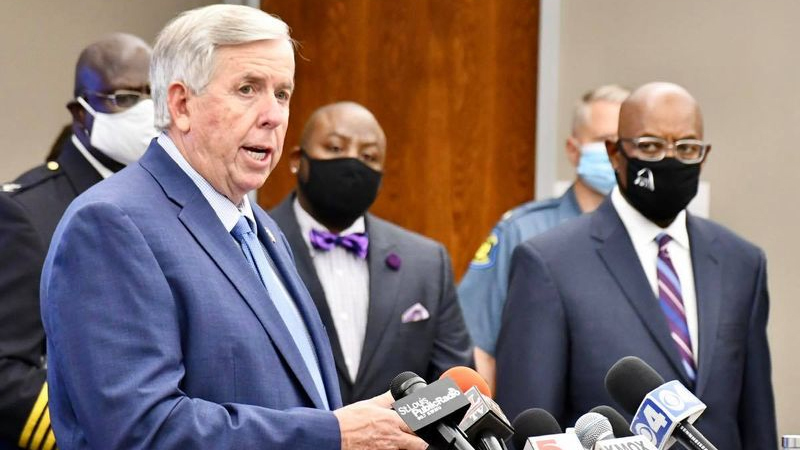Gov. Mike Parson’s office violated the Sunshine Law when it redacted records requested by a former candidate for Attorney General, according to a unanimous opinion issued by the Missouri Supreme Court last month.
“The Governor’s Office was not entitled to judgment on the pleadings simply because it noted the Sunshine Law generally permits redaction of attorney-client privileged information,” wrote Missouri Supreme Court Judge Patricia Breckenridge in the Court’s June 29 decision. “Whether redaction was proper here is a fact question that cannot be resolved on a motion for judgment on the pleadings.”
On Oct. 17, 2018, attorney Elad Gross sued Parson in Cole County Circuit Court three alleging his office knowingly and improperly redacted certain records, ignored his request for fee waiver of $40 per hour, failed to provide a detailed explanation of the cause for delay in producing records, and failed to provide the earliest time and date the requested records would be available.
“When they redacted those records, they never told me why they were redacting them and they never said they were officially closed records,” Gross told the St. Louis Record. “Certainly, those records can be redacted legally but they have to provide a valid reason and if we disagree over what those reasons are, and it's not plain what they are, we can ask the court to review those records unredacted to determine if a redaction is proper.”
But the trial court ruled in favor of the governor’s office.
“I was not expecting to lose at the trial court the way I did and I felt that I was correct in what I was asserting the entire time for all of these years,” Gross said.
Gross, a Democrat, campaigned for but lost the Missouri Attorney General election in August 2020.
The documents he requested involved communications between the office of the Missouri governor during the time of Eric Greitens and 27 groups of individuals that were allegedly trying to get around Missouri's campaign finance laws by concealing identities of donors with a fake charity, according to Gross.
“It was a target of an investigation by the Missouri State House and it ended because Gov. Greitens, the governor at the time, resigned,” he said. “I didn't think there would be a whole lot of records but when I asked, they had more than 13,000 records. It’s taken this long just to get to this point but I have not seen those records as of yet.”
Gross said he filed the lawsuit because he believes that public records belong to the public.
“They don't belong to the governor or the attorney general or the school board,” he said. “They belong to all of us. That activity was illegal in concealing those records. Maybe the nature of the records is something that the government wanted to conceal or perhaps they just believe that members of the public shouldn't be able to have this kind of a precedent where they're able to access public records in this way. I don't really know.”
If Gov. Parson does not file a petition for rehearing with the Missouri Supreme Court, the case will be remanded to the trial court for further legal proceedings.
“I am very happy to see that the Missouri Supreme Court unanimously agreed with me,” Gross said. “This case sets a very big precedent for all state and local government officials in Missouri to abide by the words of Missouri Sunshine Laws and it is a huge case for not only public record access but for transparency and accountability in state government.“
